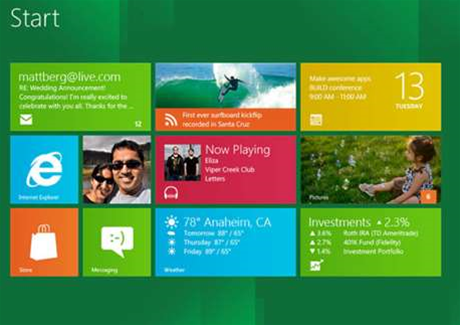An Cambridge University professor has raised concerns that a new boot system planned for Windows 8 could stop users from running dual-boot systems.

Professor Ross Anderson of Cambridge University spotted problems with the way Windows 8 implemented the Unified Extensible Firmware Interface (UEFI) that replaced the older BIOS boot-up process.
UEFI secure boot was intended to prevent boot loader attacks, but the improved security could leave some operating systems locked out of computers running Windows 8.
Anderson said the way the system required signed keys in Windows 8's "secure boot" process would make it impossible to run certain "unauthorised" OSes because they would not have a "signing key" that would allow them to boot.
That could put paid to the practice of having dual-boot systems, affecting Linux and potentially older versions of Windows.
Microsoft said key provision was an issue for OEMs as to what software they allowed on their machines.
However, a Red Hat developer has hit back at Microsoft, claiming OEMs were unlikely to build tools that enabled other operating systems to run on their systems.
Not for the first time, Microsoft has been accused of using its dominant position to bend the market in its favour.
“Competition in that market is tough, and vendors will take every break they can get. That includes the Windows logo program, in which Microsoft gives incentives to vendors to sell hardware that meets their certification requirements,” Red Hat engineer Matthew Garrett said in a blog post.
“Vendors who choose not to follow the certification requirements will be at a disadvantage in the marketplace.”
Not meeting the certification requirements would cost vendors' sales, Garrett said, and because other OSes didn't have the same bargaining power they could be locked out.
“Microsoft can require that hardware vendors include their keys. Its competition can't,” he said.
“A system that ships with Microsoft's signing keys and no others will be unable to perform secure boot of any operating system other than Microsoft's.
“No other vendor has the same position of power over the hardware vendors.”


_(20).jpg&h=140&w=231&c=1&s=0)
_(23).jpg&h=140&w=231&c=1&s=0)
_(28).jpg&h=140&w=231&c=1&s=0)





 iTnews Executive Retreat - Security Leaders Edition
iTnews Executive Retreat - Security Leaders Edition
 iTnews Benchmark Awards 2026
iTnews Benchmark Awards 2026
 iTnews Cloud Covered Breakfast Summit
iTnews Cloud Covered Breakfast Summit
 The 2026 iAwards
The 2026 iAwards












_(1).jpg&h=140&w=231&c=1&s=0)



